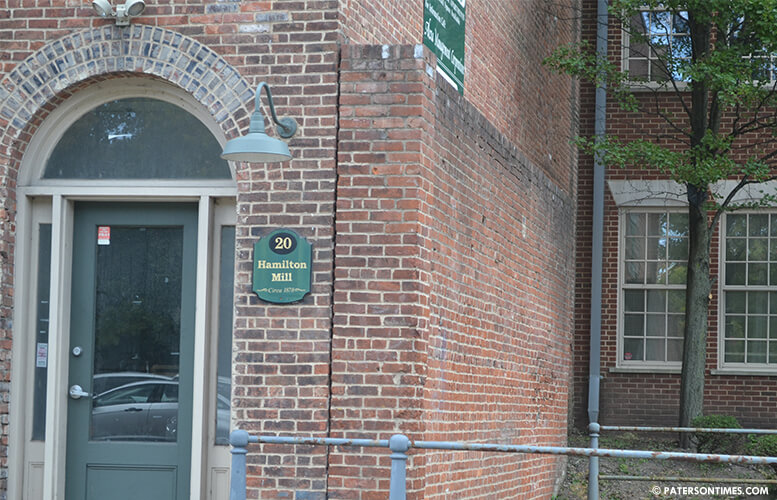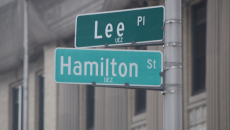After rejecting a tax abatement agreement early last year to allow a developer to renovate and expand affordable housing at a series of buildings on Market and Mill Streets, the city council is considering a revised 30-year tax deal.
Under the new agreement, the city will receive more revenue through the payment in lieu of taxes (PILOT) agreement than the previously proposed agreement, said officials. For example, the old agreement guaranteed the city $174,771 per year at 10-percent of rental income for the first ten years; the new agreement guarantees $210,026 and up.
Over the course of the 30 years the agreement is projected to deliver $1.27 million more in revenue than conventional taxes on the four properties: 5-7 Mill Street, 20 Mill Street, 21 Mill Street, and 21 Market Street, according to city records.
Under conventional taxes, the developer pays $8.26 million over a 30-year period; under the PILOT, the properties pay $9.53 million over the same time frame, according to documents made public on Wednesday night.
Kenneth Morris, councilman at-large, said there’s no way to know whether the developer will pay more through the PILOT or through taxes. He stated that the only way to figure that out would be if there were no tax increases for 30 years which is unlikely.
Council members were mixed on approving the agreement. Michael Jackson, 1st Ward councilman, opposed the agreement. He argued city homeowners will shoulder higher burdens from county and school taxes because the agreement cuts out both entities from tax revenues.
The city will receive 100-percent of the PILOT payments. He also pointed to the $625,518 in federal HOME funds the city is providing to the developer to create low-income housing at the Argus Mill to argue taxpayers are not receiving enough in return.
Jackson wanted the developer to commit to investing in an offsite park. “If the community is not getting a direct benefit why should it put up to further the developer’s portfolio,” he said.
The city’s outside legal counsel Robin La Bue of Gilmore and Monahan said requiring the developer to commit to making improvements at an offsite location will be legally “problematic.”
George McLoof, president of Longstreet Development, agreed to make a voluntary contribution. “I’m civic minded,” he said. He suggested giving the space on Mill Street that was once occupied by United Way for a nominal $1 fee to a nonprofit for an art museum. He said the spaced fetched $2,000 per month.
Ruby Cotton, 4th Ward councilwoman wanted the developer to ensure there’s recreation space for residents at the development. “You can’t keep cramming people in small confinement,” she said.
Luis Velez, 5th Ward councilman, thought there should be a park for people living at the development. However, making a park at the location will subtract parking spaces that are required by the planning board, said the developer.
Mayor Jose “Joey” Torres suggested the developer assist in rehabilitating the Paterson Museum building which is across the street from 21 Market Street.
The developer and the city will have work out the best way for McLoof to make a civic contribution that will benefit the Silk City community.
“It cannot be a condition for approval,” warned the mayor echoing the sentiment of the attorney. He thought the project brings much benefit to the city through affordable housing, jobs, and investment.
Torres said the project brings “affordable housing that we really need.” Building low-income housing in an impoverished community like Paterson only further concentrates poverty, say experts. When the PILOT was first presented to the council in 2015, former councilman Julio Tavarez argued against it because of the affordable housing component.
The developer will build 47 new affordable housing units as part of the $29 million project. The development will be financed through New Jersey Housing and Mortgage Financing Agency (HMFA), Low-Income Housing Tax Credits (LIHTC), Historic tax credits, HOME Funds, and sponsor loan, according to the developer’s presentation.
Renovation of the buildings will include installing historic wood windows and doors. Substantial rehabilitation of hallways, lobbies, entry systems, elevators, exterior lighting, and security cameras.
3 of the 4 buildings owned by the Cooke Hamilton Associates are certified historic structures by the National Park Service. McLoof said the revised agreement was prepared using the HMFA Law as opposed to the old agreement which was crafted in accordance to the Urban Renewal Law. He said this changed allowed to receive more revenue.
100 construction jobs and 7 permanent jobs will be created through the project, according to city records.
The city council will vote on the tax abatement agreement at its regular meeting on January 17, 2017.



